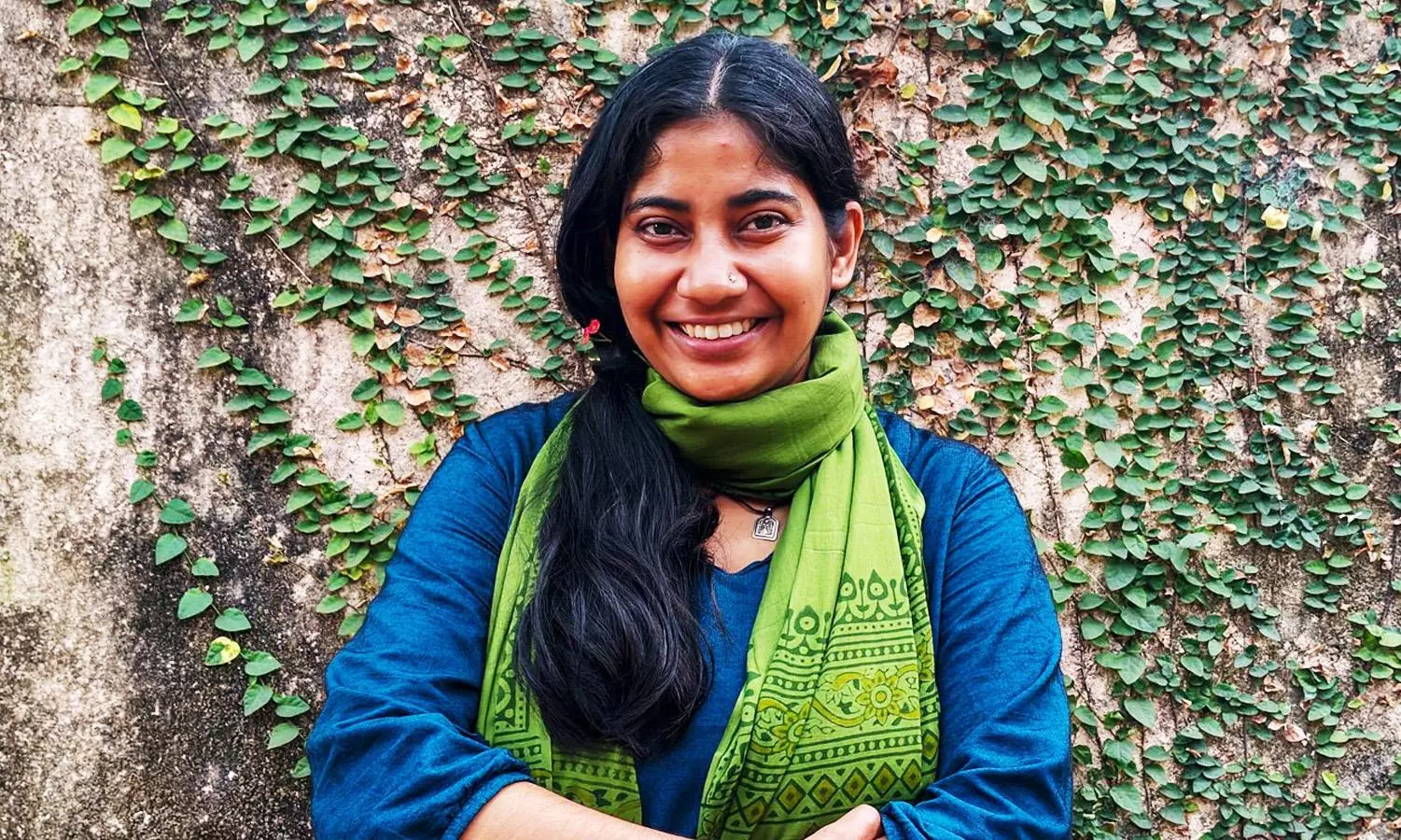
Labani Jangi: Art, activism rooted in heritage and justice
For storyteller and illustrator Labani, art is both a form of expression and a personal refuge; she is the first recipient of the TM Krishna Pari Award

Coming from a Muslim family in West Bengal's Nadia district and born to her communist parents, Labani Jangi attributes her passion for painting about the downtrodden to her father’s communist ideologies.
This upbringing ignited her commitment to using art as a means to highlight social injustices and advocate for equity within Indian society. Labani’s groundbreaking contributions to art and research have been recognised with the TM Krishna Pari Award, making her the first recipient of this prestigious honour.
Also read: At Chennai art show, women photographers transcend the label of gender
The award, which celebrates individuals who make significant cultural and social impacts, has brought immense joy and responsibility to Labani’s journey as an artist. Her reflections on receiving the award highlight the dual emotions of pride and a renewed sense of purpose. In an exclusive interview with The Federal, Labani, while expressing her gratitude, shared how receiving the award felt like a crown on her head and a validation of her work as a storyteller and illustrator.
The bond between art and heritage
Labani’s creative journey is deeply influenced by her roots. She often recalls the inspiration drawn from her grandmother, who was a weaver. This connection has shaped her identity as an artist who sees storytelling and illustration as extensions of her heritage. Labani emphasised that her work is grounded in social research, allowing her to merge academic inquiry with artistic expression.
“My work is rooted in storytelling,” she explained, adding that her art provides a platform to address the challenges and aspirations of her community and the broader socio-political landscape.
'Painting is my escape'
For Labani, art is both a form of expression and a personal refuge. She shared that while she occasionally addresses political themes, her creations often depict serene subjects like flowers and the sea, offering her a sense of peace.
"Painting is my escape," she noted, explaining that it allows her to navigate the complexities of life while maintaining hope. Despite societal tags like "Muslim female artist", Labani aspires to be seen simply as an artist whose work transcends labels and stereotypes.
Highlighting the lives of migrant laborers
As a social science researcher, Labani’s work delves into the experiences of Bengali migrant laborers. She shed light on their struggles, particularly the discrimination they face due to their language and cultural identity. During the Covid-19 pandemic, these challenges became more pronounced, turning their dreams into nightmares.
Labani’s art and research aim to amplify their stories, emphasising that their voices deserve recognition and understanding in India’s socio-political fabric. Her exploration of these lives reflects a commitment to documenting and advocating for marginalized communities.
Sustaining art in today’s climate
Labani addressed the challenges of sustaining oneself as an artist in today’s socio-political and economic climate. In Kolkata, she explained, many artists face precarious working conditions despite the presence of a thriving art market. The lack of unions and support systems leaves many struggling to survive, even as the art world experiences significant financial growth.
She highlighted the disparity between the fame some artists achieve and the struggles faced by many others who work long hours with little recognition. Despite these challenges, Labani remains committed to her craft, using her art as a means to document and critique the present moment.
“Art is like writing a diary,” she said. “Whether it contributes politically or not, it remains a reflection of our times.”
A dream of unity and justice
Throughout her journey, Labani has been guided by a vision of a more just and inclusive world. Her dream of unity, free from mob lynchings and communal violence, continues to inspire her art and activism. Whether through words or colors, Labani’s work strives to contribute to this ongoing fight for equity and humanity.
“This dream will continue,” she affirmed. “Art has the power to document and speak to the times we live in."
The content above has been generated using a fine-tuned AI model. To ensure accuracy, quality, and editorial integrity, we employ a Human-In-The-Loop (HITL) process. While AI assists in creating the initial draft, our experienced editorial team carefully reviews, edits, and refines the content before publication. At The Federal, we combine the efficiency of AI with the expertise of human editors to deliver reliable and insightful journalism.

